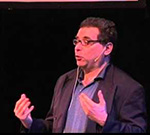Euroacademia Conferences
 Europe Inside-Out: Europe and Europeanness Exposed to Plural Observers (9th Edition) April 24 - 25, 2020
Europe Inside-Out: Europe and Europeanness Exposed to Plural Observers (9th Edition) April 24 - 25, 2020 Identities and Identifications: Politicized Uses of Collective Identities (9th Edition) June 12 - 13, 2020
Identities and Identifications: Politicized Uses of Collective Identities (9th Edition) June 12 - 13, 2020 8th Forum of Critical Studies: Asking Big Questions Again January 24 - 25, 2020
8th Forum of Critical Studies: Asking Big Questions Again January 24 - 25, 2020 Re-Inventing Eastern Europe (7th Edition) December 13 - 14, 2019
Re-Inventing Eastern Europe (7th Edition) December 13 - 14, 2019 The European Union and the Politicization of Europe (8th Edition) October 25 - 26, 2019
The European Union and the Politicization of Europe (8th Edition) October 25 - 26, 2019 Identities and Identifications: Politicized Uses of Collective Identities (8th Edition) June 28 - 29, 2019
Identities and Identifications: Politicized Uses of Collective Identities (8th Edition) June 28 - 29, 2019 The European Union and the Politicization of Europe (7th Edition) January 25 - 26, 2019
The European Union and the Politicization of Europe (7th Edition) January 25 - 26, 2019 7th Forum of Critical Studies: Asking Big Questions Again November 23 - 24, 2018
7th Forum of Critical Studies: Asking Big Questions Again November 23 - 24, 2018 Europe Inside-Out: Europe and Europeanness Exposed to Plural Observers (8th Edition) September 28 - 30, 2018
Europe Inside-Out: Europe and Europeanness Exposed to Plural Observers (8th Edition) September 28 - 30, 2018 Identities and Identifications: Politicized Uses of Collective Identities (7th Edition) June 14 - 15, 2018
Identities and Identifications: Politicized Uses of Collective Identities (7th Edition) June 14 - 15, 2018
Cold War and Helsinki: Eastern Europe Defined by Human Rights
-
-

-
Presentation speakers
- Itai Sneh, John Jay College, City University of New York
Abstract:
This presentation will make three arguments concerning political dimensions of the Cold War:
1. The promotion and protection of human rights served as a unifying, rallying point for Eastern Europeans during the Cold War. Indeed, human rights advocacy was effectively a form of transnational anti-Communism.
2. Political considerations of who was in the Warsaw Pact (such as Czechoslovakia and Poland) and who was not (such as Albania, Romania and Yugoslavia) strongly affected how Eastern Europe was defined.
3. The 1975 Helsinki Final Act, where the Cold War human standards became concrete, articulated, and subsequently proclaimed, was the symbolic and substantive embodiment for this pattern.
The August 1, 1975 Helsinki Final Act was a diplomatic compromise reached by Kissinger with the Soviets through the Conference of Security and Cooperation in Europe in the spirit of détente. It introduced a less than subtle quid pro quo: the Communists pledged respect for universal human rights such as civic liberties, but without specific mechanism for enforcement in particular countries. In exchange, the West recognized the permanent territorial integrity and political legitimacy of these oppressive regimes in Eastern Europe. Warsaw Pact leaders feared demands to reverse its accomplishments from the emerging continental powerhouse, West Germany, and from the descendants of displaced refugees, with potential American patronage. Local groups in Communist countries were inspired by the mention of civil liberties as a rallying call for action. One grassroots organization was Charter 77 in Czechoslovakia, formed by human rights defenders – including playwright Vaclav Havel – in a manifesto on January 1, 1977 to monitor the faulty observation of the Helsinki standards proclaimed exactly seventeen months earlier. Another manifest was the Solidarity movement in Poland. Organized by Lech Walesa, an electrician in Gdansk’s Lenin shipyards, felt empowered by such civic liberties as the rights to freedom of expression and forming political parties. Thus, Helsinki triggered a process of verification that was internal,and that built trust in the veracity of international concern and subsequent protections for oppressed people under Communist regimes. -
Related Presentations

East, West, Home Is Best: The Evolution of Slovak Colour
- Mima Chovancova

The Magic and the Secular in European Politics: Case Studies from Romania
- Alexandra Cotofana













